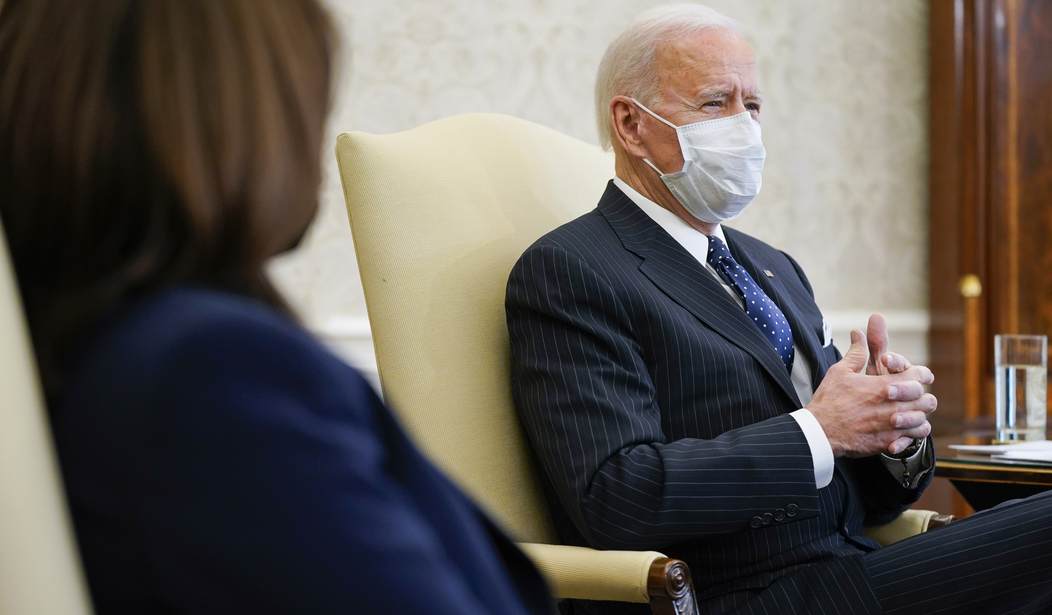Conventional wisdom dictates that if the government pumps a lot of money into the economy it will bloom and blossom like a flower getting water and grow and grow and grow.
It’s the basis of modern liberal economic thinking and has been since the New Deal. The government giving money to people to spend is better than the private sector doing it.
But the respected scholars at the University of Pennsylvania’s Wharton School of Business have taken out their slide rules and abacuses and determined that’s not the case with Joe Biden’s $1.9 trillion stimulus bill. In fact, the impact of all that money will be negligible in 2021 and would actually damage the economy by 2022.
“The existence of the debt saps the rest of the economy,” Wharton analyst Efraim Berkovich said. “When the government is running budget deficits, the money that could have gone to productive investment is redirected.”
“Effectively, what we’re doing is taking money from [some] people and giving it to other people for consumption purposes,” he continued. “That has value for social safety nets and redistributive benefits, but longer-term, you’re taking away from the capital that we need to grow our economy in the future.”
And while it’s a dirty word in Washington, debt would continue to accumulate.
Biden’s costly plan would explode the national debt. This, per Wharton, would lead to a “crowding out” effect over the coming years as more loan money is taken away from productive business/private sector investments and instead consumed by government debt.
As a result, the analysts find that workers would see a small decline—not an increase—in their hourly wages by 2022 and a slightly larger decline in their hourly wages by 2040. In 2022, the overall number of hours worked would actually fall due to the plan.
So, Wharton concludes, Biden’s spending binge would actually lead to a smaller economy in 2022. How’s that for “stimulus?”
Rarely mentioned by Biden and the Democrats pushing this “stimulus that isn’t” are the roadblocks to recovery that the Democrats want to include in the bill. A $15-an-hour minimum wage with half the small businesses in America struggling to get up off the mat and get back into the fight is lunacy.
The five or six months more of extended unemployment benefits, where most unemployed workers will be paid more for sitting at home than being on the job, will retard the recovery substantially when businesses can’t entice their employees back to work.
These are the unseen costs of the stimulus that brilliant political economist Frédéric Bastiat discussed in one of his essays.
“[A] law gives birth not only to an effect but to a series of effects,” Bastiat wrote. Only the first effect is foreseen by naive policymakers who fall victim to this fallacy, while the many second-order consequences remain unseen.
“It almost always happens that when the immediate consequence is favorable, the ultimate consequences are fatal, and the converse,” he wrote. “Hence it follows that the bad economist pursues a small present good, which will be followed by a great evil to come, while the true economist pursues a great good to come—at the risk of a small present evil.”
The crisis caused by the pandemic is over. Why are Biden and the Democrats acting as if it’s just beginning?










Join the conversation as a VIP Member